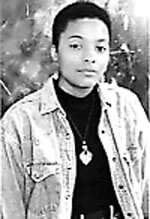State LGBT groups hold emergency meeting to fight backlash, move initiatives
Forty-seven leaders from 31 statewide lesbian, gay, bisexual, and transgender (LGBT) groups held a two-day “Marriage Summit” in Crystal City, Va., outside of Washington, DC, last weekend in a mood of crisis to bolster their skills, morale, and effectiveness as they face down an unrelenting assault on gay rights from a better funded and organized religious right.
It was led by the Federation of Statewide Lesbian, Gay, Bisexual, and Transgendered Advocacy Organizations and funded, in part, by the Gill Foundation and Freedom to Marry.
“Organizations that arrived without plans, left with them,” said Nadine Smith, the co-chair of the federation as well as director of Equality Florida. “Groups that came with plans got resources and expertise to make them more effective. People had a sense that this is a pivotal moment of unprecedented cooperation between state and national organizations” and that the importance of state-based organizing in the marriage wars was finally being recognized.
State LGBT groups vary from those that are made up of a couple of volunteers to well-staffed professionally run outfits such as New York’s Empire State Pride Agenda. Ross Levi, director of governmental affairs for the Pride Agenda, said, “The summit was an important opportunity for groups with less capacity to get information, learn from colleagues, and develop some kind of plan for dealing with marriage in their state.”
He said that they spent the first day working on skills––with Evan Wolfson of Freedom to Marry helping with “messaging” and the Gay and Lesbian Alliance Against Defamation explaining how to market the message. Tim Cavanaugh of Equality California talked about how his group dealt with the statewide ballot initiative in 2000 that limited marriage to heterosexual couples. Professional public relations and fundraising people also made presentations.
The second day was devoted to creating individual plans for dealing with the marriage issue in each state.
“Some states are dealing with ballot initiatives whether Defense of Marriage Acts or constitutional amendments,” said Levi, “and others face legislation, lawsuits,” or just the need for “general education.”
“New York has the luxury of not dealing with a ballot initiative this November,” he said, but many states are up against one.
“Besides working on the plan,” Levi said, “we were frankly supporting each other in the anxiety and pressure we are all feeling on this issue. That is particularly true in a state where they’ve worked for a decade just to get a hate crimes bill or an anti-discrimination law and legislators who had given quiet support are now running away and saying they can’t support them on anything.”
Toni Broaddus, a San Francisco activist who was hired to coordinate the summit, said, “We can have a national strategy on marriage, but we have to have individual state strategies as well.” She stressed the need for a “fully funded movement” right down to the state level, noting that “any state could become a key state at any moment.”
Today’s key state is Massachusetts and MassEquality is running the campaign to defend politically the right of gay couples to marry that will begin on May 17. Marty Rouse, the group’s campaign coordinator, was not in Crystal City for the summit, but his group was represented. MassEquality has just two full-time staff, but has gotten lots of help from the Human Rights Campaign and other groups in the white-hot battle there.
“While one Constitutional Convention is behind us, we need to get ready for the next one and this year’s elections and a ballot initiative in either 2006 or 2008,” Rouse said. “This issue will be put to the voters and we need to make sure we build the best campaign possible to secure out marriage rights. This is a long battle.”
He is putting out a “national call” for help lest we lose the one state where marriage for gay couples is legal.
Rodger McFarlane, the long time AIDS activist who helped found the Gay Men’s Health Crisis, just took over as director of the Gill Foundation founded by out gay philanthropist Tim Gill. He emphasized that five foundations have stepped forward to fund same-sex marriage work at the state and national levels, mostly through the work of Tim Sweeney of the Evelyn and Walter Haas, Jr. Fund in San Francisco. The others include the Tides Foundation and George Soros’s Open Society Institute.
“This is a state-by-state fight and we have not invested in it,” McFarlane said. “We have to win friends and intimidate enemies on a state level.”
Smith concured.
“This is a survival issue around building state programs in the very place that the right wing is pouring its resources,” she said. “It is exciting from my vantage point to see the number of groups now that did not exist or were struggling a few years ago that have brought on staff and have developed plans that make winning possible. That shift occurred because people recognized that we can no longer neglect this important component of the movement.”
Levi said, “If we can stand up and not ask for pieces of equality but ask for full equality, in the long run that is a stronger message. I think everyone left invigorated even in those states that are facing short-term defeats. They know that as part of an overall movement, this is a good fight.”


































